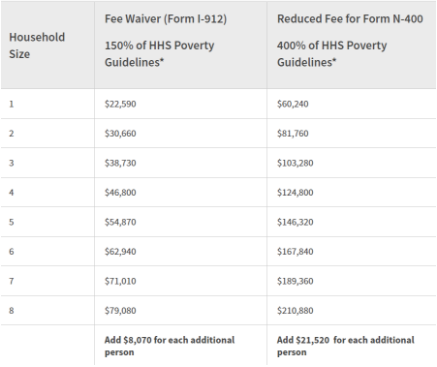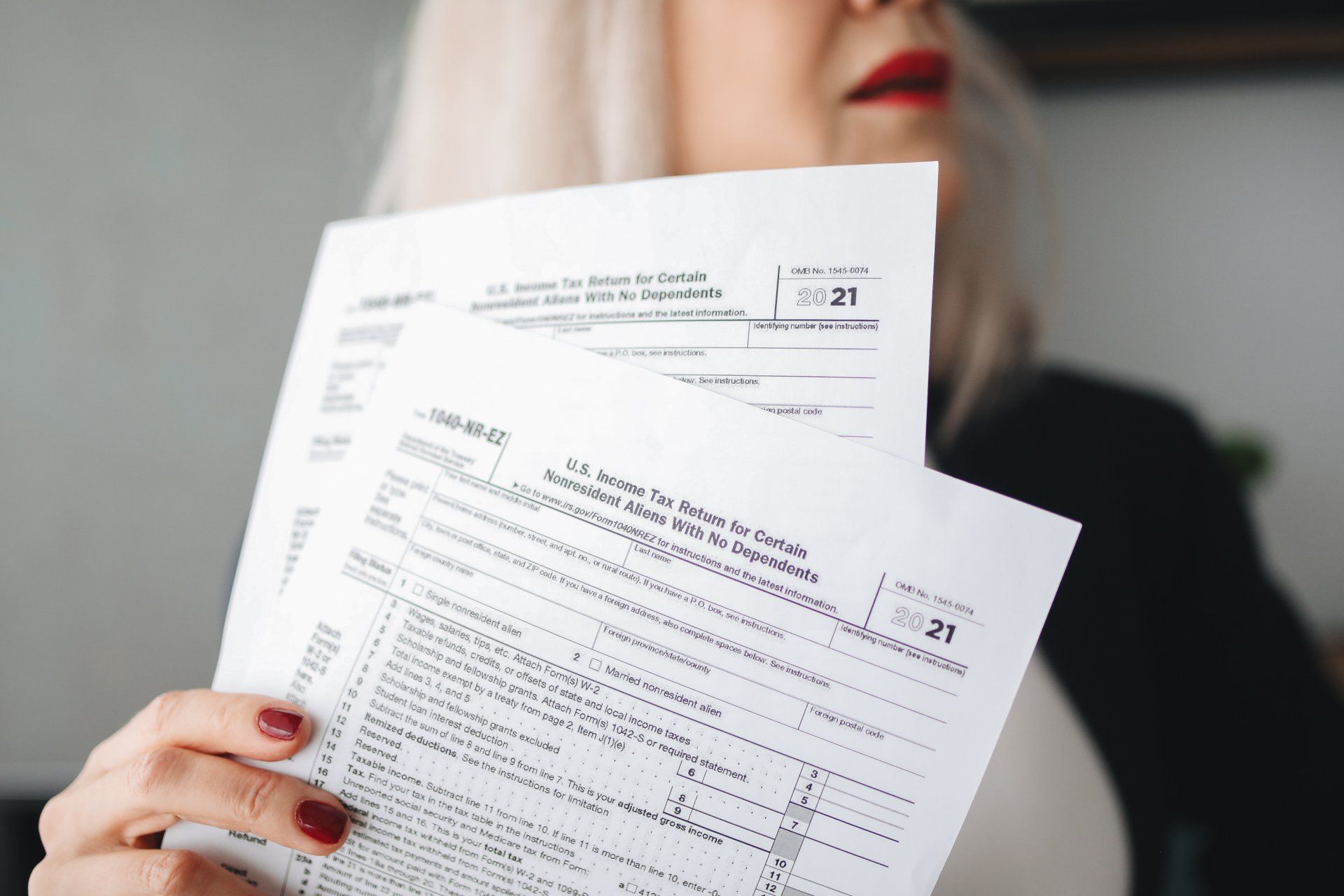L'USCIS modifie le formulaire et les frais de dépôt de la demande de naturalisation
Click here to read this article in English

L'USCIS a introduit une taxe réduite de 380 $ pour les demandeurs dont le revenu annuel du ménage est inférieur à 400 % des directives fédérales en matière de pauvreté (https://www.uscis.gov/forms/filing-fees/poverty-guidelines).
Les demandeurs qui souhaitent bénéficier d'une réduction de la redevance doivent répondre à la partie 10 de la nouvelle édition du formulaire et joindre des documents prouvant que le revenu annuel de leur ménage est inférieur à 400 % du seuil de pauvreté fédéral. La demande de réduction de la redevance doit être accompagnée d'une copie de la dernière déclaration d'impôts fédérale de chaque membre du ménage. D'autres documents peuvent être présentés si les déclarations d'impôts ne sont pas disponibles, tels que les fiches de paie, le formulaire W-2 récent et une lettre d'un employeur vérifiant le revenu actuel du demandeur. Le calcul du revenu est effectué au moment du dépôt de la demande.
Les demandeurs qui remplissent les conditions requises pour bénéficier d'une dispense totale de frais peuvent toujours remplir le formulaire I-912, Request for Fee Waiver (demande de dispense de frais). Les trois critères d'admissibilité à une dispense totale sont : la réception d'une prestation sous condition de ressources, un revenu inférieur ou égal à 150 % des directives fédérales en matière de pauvreté, ou des difficultés financières extrêmes.
Pour plus d'informations sur les changements mis en œuvre par l'USCIS, consultez le site : https://www.uscis.gov/n-400.
Si vous pensez être éligible pour demander la naturalisation ou si vous avez des questions sur votre éligibilité et la procédure, veuillez prendre rendez-vous avec l'un de nos avocats expérimentés et nous serons ravis de vous aider.
Ce blog n'est pas destiné à fournir des conseils juridiques et rien ici ne doit être interprété comme établissant une relation avocat-client. Veuillez prendre rendez-vous avec un avocat spécialisé en droit de l'immigration avant d'agir sur la base de toute information lue ici.
Denice Flores
Similar Posts









